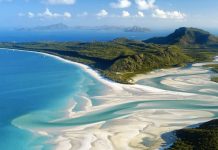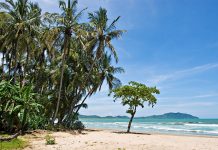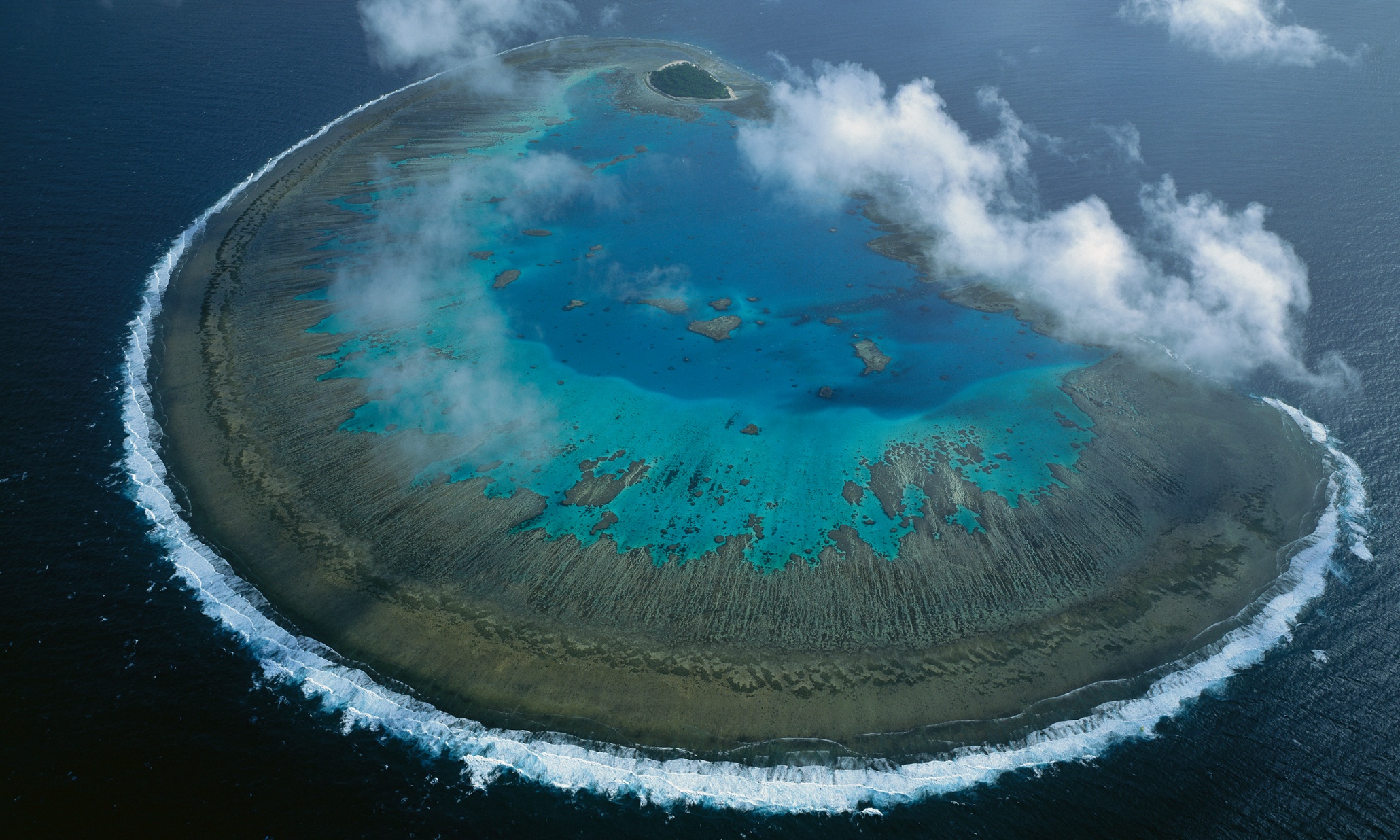This post may contain affiliate links. We may earn money or products from the highlighted keywords or companies or banners mentioned in this post.
The horses had been brought in from the hills and were tethered next to a pile of drying dung. All around were snowcapped peaks and on one side lay a shimmering lake of glacial blue water. The Kyrgyz men were deciding who would ride which horse. Kanybek looked at me, the only man left in our riding party, which had somehow slimmed down from 10 to three at the sight of the stallions. I’d heard about Kanybek, the best ulak player in the area (that’s polo played with a dead headless goat, the same as the Afghan bushkazi).
Kanybek was a man who could pluck a 10 som note from the ground at a full gallop, a man who could mount a steed with a back somersault. He had been born in the shadow of a horse, ridden before he could walk and drunk mare’s milk ever since. I had serious doubts whether Kanybek could begin to comprehend how crap I was at riding horses.
“This one is for you,” he said, his weathered face splitting into a champion grin. “It is the fastest.”
I’m not sure which was worse: the fact that he thought he was doing me a favour, or the fact that I didn’t want to let him down. This, I told myself, is how adventures happen … and accidents.
“>[embedded content]
I’d set off for Kyrgyzstan intending to have an adventure, but I was with a group, on a tour, and I had strong suspicions that “group adventure” was a contradiction in terms. A growing number of companies will gladly sell you what they call an adventure – but I’ve always thought they required the unexpected to happen, and why am I paying a travel agent if not to prevent the unexpected? Now here I was, in a fabulous yurt camp on the shores of Song Kul Lake right in the centre of the mountainous country, wondering how I could extricate myself from this first clear-cut opportunity for adventure.
Actually I could not. How could I spurn Kanybek’s generosity? I climbed on the chestnut stallion and tried to communicate authority, coolness and instinctive command, all through my backside. Sarah and Maat, my two remaining companions, were already mounted, also on stallions. They looked as though they knew what they were doing. We started out across the lovely rolling greensward that led up to the hills. Kanybek had said we could ride to his summer camp, meet his new wife and family, then take a big loop around, checking his herds of sheep.
The ride to the camp, which consisted of an old clapped-out pick-up truck parked outside a couple of yurts, was doable, as the horses did not break into so much as a trot. Inside one of the yurts was Kanybek’s mother and his new wife, an unexpectedly glamorous young lady with a broad smile and a bowl of fermented mare’s milk ready to welcome the guests.
We sat on rugs and tried to converse. A bit of Russian goes a long way in Kyrgyzstan, but all I know was learned by reading A Clockwork Orange at the age of 13. Anthony Burgess, the author, had claimed his use of Russian as teenage gang slang would help teach the language, which was true, but the vocabulary of hooliganism didn’t quite fit in a Kyrgyzstani yurt.
Then we spotted the accordion. “Do you play?” Lots of finger-pointing. Kanybek’s wife carried it over to him. His reluctance increased our expectations. Then he sang.
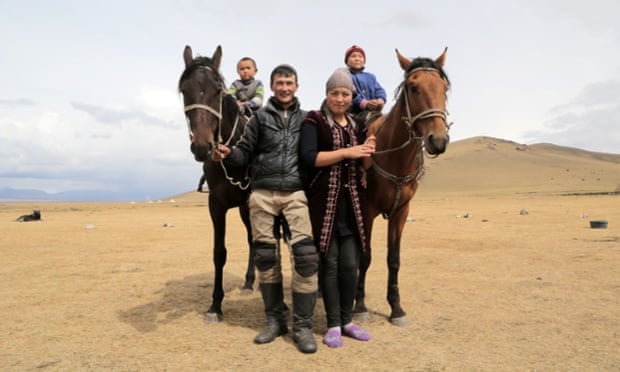
For 20 minutes we sat enthralled as he wove magic circles with that squeeze-box, singing, I’m sure, of love. He was just married and clearly totally smitten with his bride. Whenever he stopped, she would prompt him. And so he played, singing his heart out to her, and we just sat there, keeping his mum company, very well aware that we were invisible to the young lovers, but very happy to witness their joy.
Now this, I thought, is a true adventure: the unexpected horse ride, by chance with the champion rider, out to his summer camp, where he regales us with folk melodies. A blessed adventure.
“Eto konets,” said Kanybek, signalling that this was the end of his performance. And abruptly he got up and walked outside to the horses. We followed. I swung myself aboard confidently. This was a wonderful escapade. The clear sky, the wild mane of a stallion, the whoops of Kanybek, the dazzling smile of his bride. How wonderful to impress a beautiful woman with your horsemanship.
I touched the flanks of my steed with my heels. The last thing I remember was Sarah’s face as I passed her, a mixture of frozen puzzlement and anxiety. After that it was just me and the wild mane of the stallion: I was hanging on to it. We galloped away in a long arc and I remember thinking, I have absolutely no control.
Then the river bank was straight ahead, with its metre-high drop on to a bed of gravel and boulders. I got a hold on the reins and hauled with all my strength. The stallion gave a sort of dismissive head flick. “Why stop?” he seemed to be saying. “This is fun.”
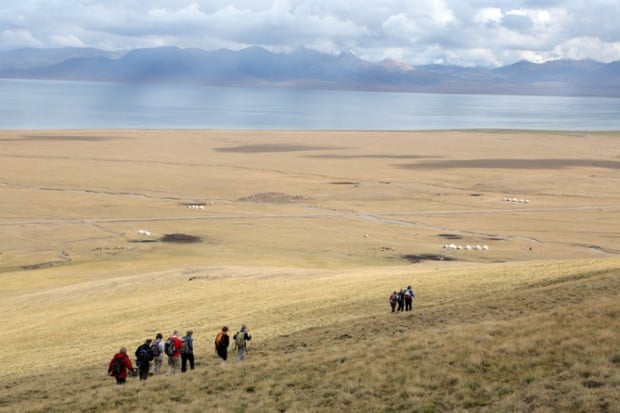
I got him turned just before the river and then we were careering back to the others, who were trotting along very calmly about half a mile away. I don’t think Kanybek had even entertained the idea of a man being unable to control a horse, but he noticed the blood dripping from my hands where the reins had cut in. I jumped down and realised my legs were shaking. Kanybek frowned and gestured: “You want to change horses?”
With relief I let him help me on to his mount, then he sprang aboard the wild untamed beast and whipped it into a crazed spin. When it stopped, there was only one governor. On my second stallion of the day, I tried to keep very still, communicating authority with my trembling backside. We rode back to our camp without further incident.
That night I spent a lot of time on the long-drop toilet. The mare’s milk, I reckon, had got to me. The stars were magnificent. Adventure, I mused, comes only when you push beyond your limits, ask more of yourself and others. Travelling alone can bring those challenges without any effort: the anxieties of finding transport, the baffled Russian roulette of a menu in an alien alphabet, and the question of where to stay.
Kyrgyzstan actually makes all those things very easy. Its government-run homestay system, CBT, is a world-beating paragon of easygoing hospitality, where one host will pass you along to another. Although some of the most successful homestays have become more like guesthouses, there are still plenty that feel like absorption into a family. Get to the central office in any area and they will find the right place for you.
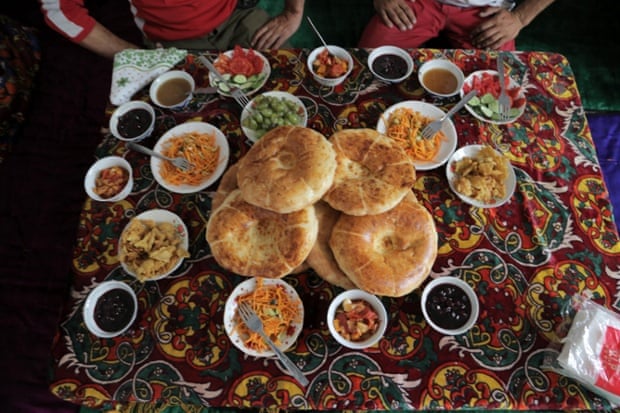
At one, in the small town of Arslanbob, the local organiser, Hayat Tarikov, took me to meet a renowned storyteller and bridle-maker, then to eat meat pasties in the market, all the while beaming with good humour and introducing me to everyone we bumped into, including Kyrgyzstan’s wrestling champion.
Next day, I went off with MC, one of the group, to buy vodka. That was a mini-adventure in itself, but she confessed that coming on a group tour was her biggest challenge. All the socialising and chatter, the instant friendships, and the growing irritations.
There were times when this frustrated me: the tour bus with its incessant photo breaks and the sheer time-consuming rigmarole of getting a group into a restaurant or waiting for everyone to be ready to leave. You might choose an adventure with some freedom from that, but as a group with all transport and meals included, our costs were low and we covered plenty of ground, looping way out west to the alpine lakes at Sary Chelek, south into Uzbek-speaking areas and then east through spectacular Arslanbob, Son Kul lake and Naryn with its dramatic gorge.
The mini-adventures had to be found in the moments between scheduled items. Opportunities to ride, walk alone or accept an invitation by a local had to be seized. It would be easy to be on a group tour, I reflected, and miss the chances for adventure completely.
Throughout our time, however, one final group effort did hang heavily on some minds: the last trek to the 4,023-metre Ton Pass. As the days passed, group members started making their excuses. After an epic drive up alongside the tumbling Naryn river, passing nomads’ herds of sheep, we reached a final high-altitude camp surrounded by snow-capped peaks. We were now in position for our trek, but it was a much-reduced contingent who rose in the icy dawn, wrapped up in full winter gear despite the fact that it was the height of the Kyrgyz summer.
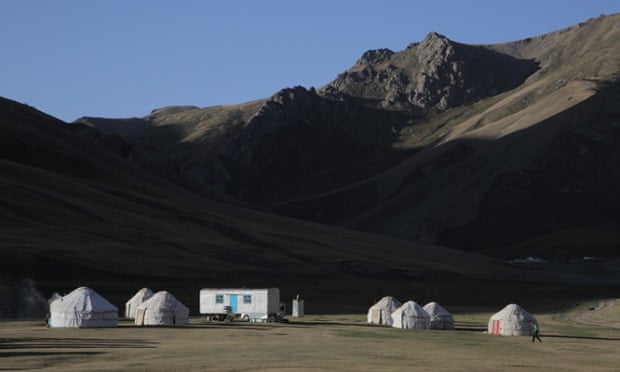
The walk was wonderful: a long, lung-busting climb to breathtaking panoramas. Kyrgyzstan is 80% mountains and we felt that we were in the middle of it. Beyond the pass, we came across the skeletons of horses, possibly killed by wolves, certainly stripped by vultures. It felt, for a few prized hours, as though we were in the Central Asia of the ancient Silk Road, the land explored by men like Sven Hedin and Aurel Stein. At a brilliant blue glacial lake, I was carried away by the glory of it all and dived in. It certainly cleared my sinuses.
At the close of the day, we’d made it over the pass to Issyk Kul, the world’s second-largest mountain lake after Titicaca, and swam in its warmer water. Over a celebratory glass of local vodka, I mulled over whether adventure is possible on a group tour and decided that it is – but only if you seize your chances.
Way to go
The trip was provided by Wild Frontiers (wildfrontierstravel.com), whose 15-day Kyrgyzstan Explorer trip costs from £1,675pp including full-board accommodation but not flights. Find out more about community-based tourism in Kyrgyzstan at cbtkyrgyzstan.kg. Accommodation at Gatwick was provided by Holiday Extras (holidayextras.com)
Powered by WPeMatico


